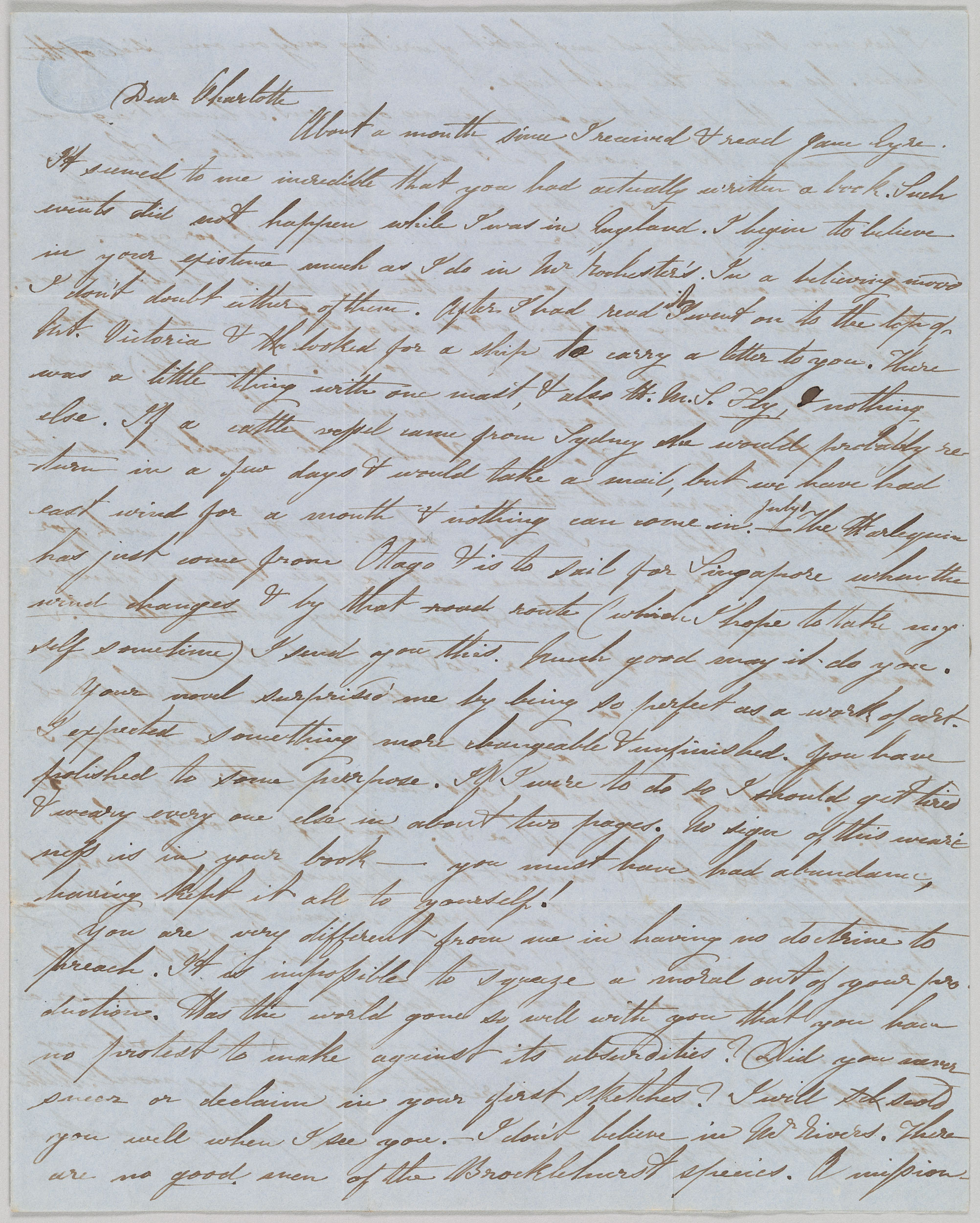
Letter to Charlotte Brontë, dated Wellington, New Zealand, 24 July 1848
Henry H. Bonnell Collection, bequest of Helen Safford Bonnell, 1969
When she published her first novel, Jane Eyre, in 1847, Charlotte Brontë told almost no one. But she did send a copy, along with Emily’s Wuthering Heights and Anne’s Agnes Grey, to her good friend Mary Taylor in Wellington, New Zealand. Taylor responded with this affectionate letter. By the time it arrived in Yorkshire (five months after she had dispatched it from Wellington), Emily was near death and “Currer Bell” was a literary star.
Dear Charlotte
About a month since I received & read Jane Eyre. It seemed to me incredible that you had actually written a book. Such events did not happen while I was in England. I begin to believe in your existence much as I do in Mr Rochester’s. In a believing mood I don’t doubt either of them. After I had read it I went on to the top of Mt. Victoria & looked for a ship to carry a letter to you. There was a little thing with one mast, & also H.M.S. Fly & nothing else. If a cattle vessel came from Sydney she would probably return in a few days & would take a mail, but we have had east wind for a month & nothing can come in.—July 1. The Harlequin has just come from Otago & is to sail for Singapore when the wind changes & by that road route (which I hope to take myself sometime) I send you this. Much good may it do you.
Your novel surprised me by being so perfect as a work of art. I expected something more changeable & unfinished. You have polished to some purpose. If I were to do so I should get tired & weary every one else in about two pages. No sign of this weariness is in your book—you must have had abundance, having kept it all to yourself!
You are very different from me in having no doctrine to preach. It is impossible to squeeze a moral out of your production. Has the world gone so well with you that you have no protest to make against its absurdities? Did you never sneer or declaim in your first sketches? I will scold you well when I see you.—I don’t believe in Mr Rivers. There are no good men of the Brocklehurst species. A mission-
